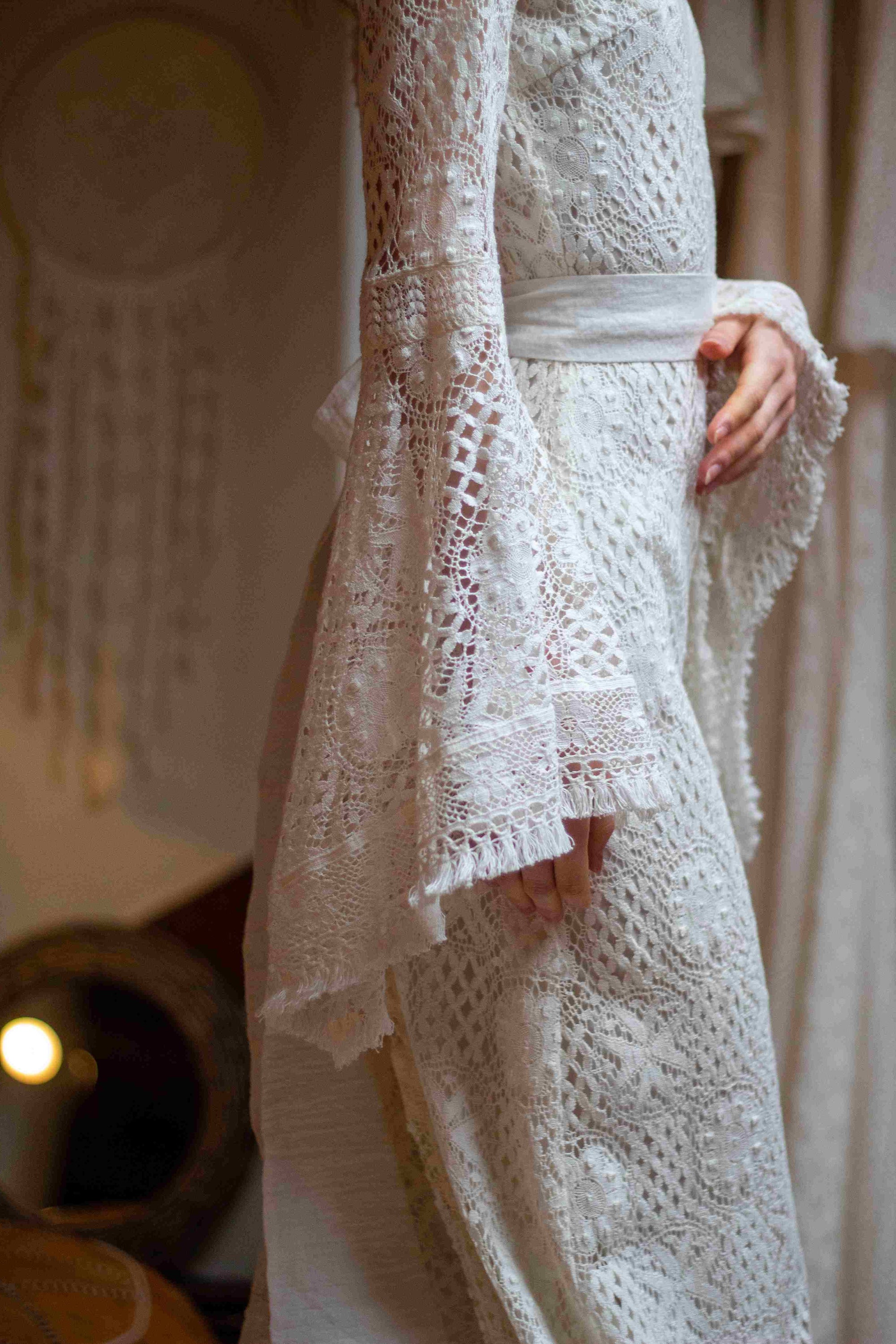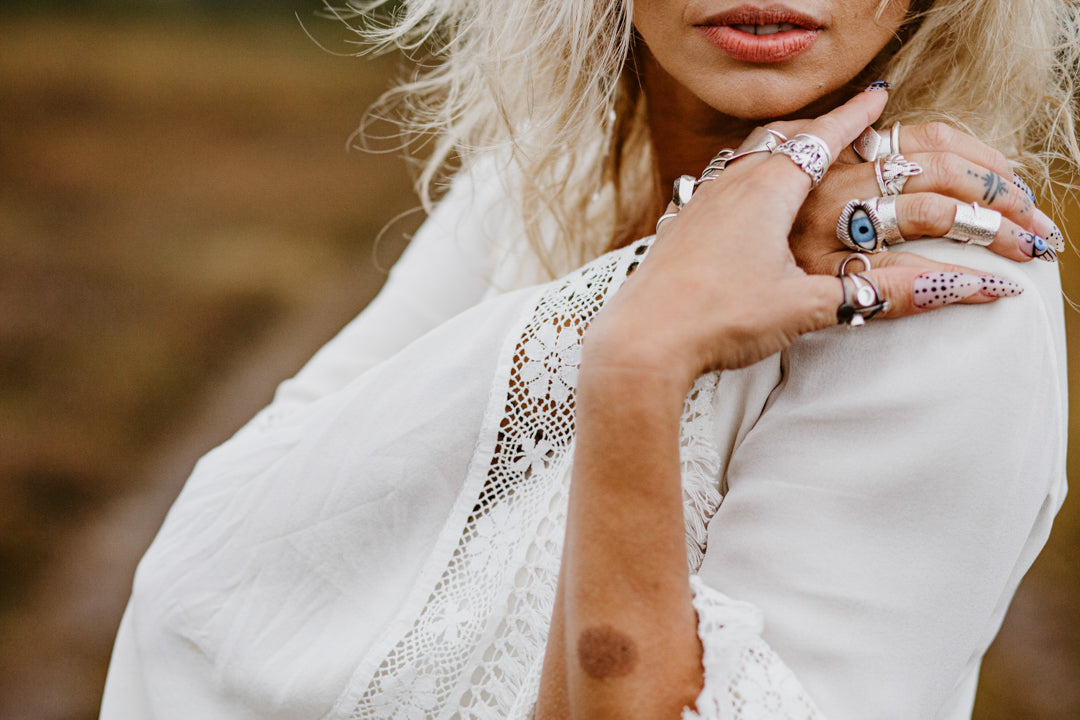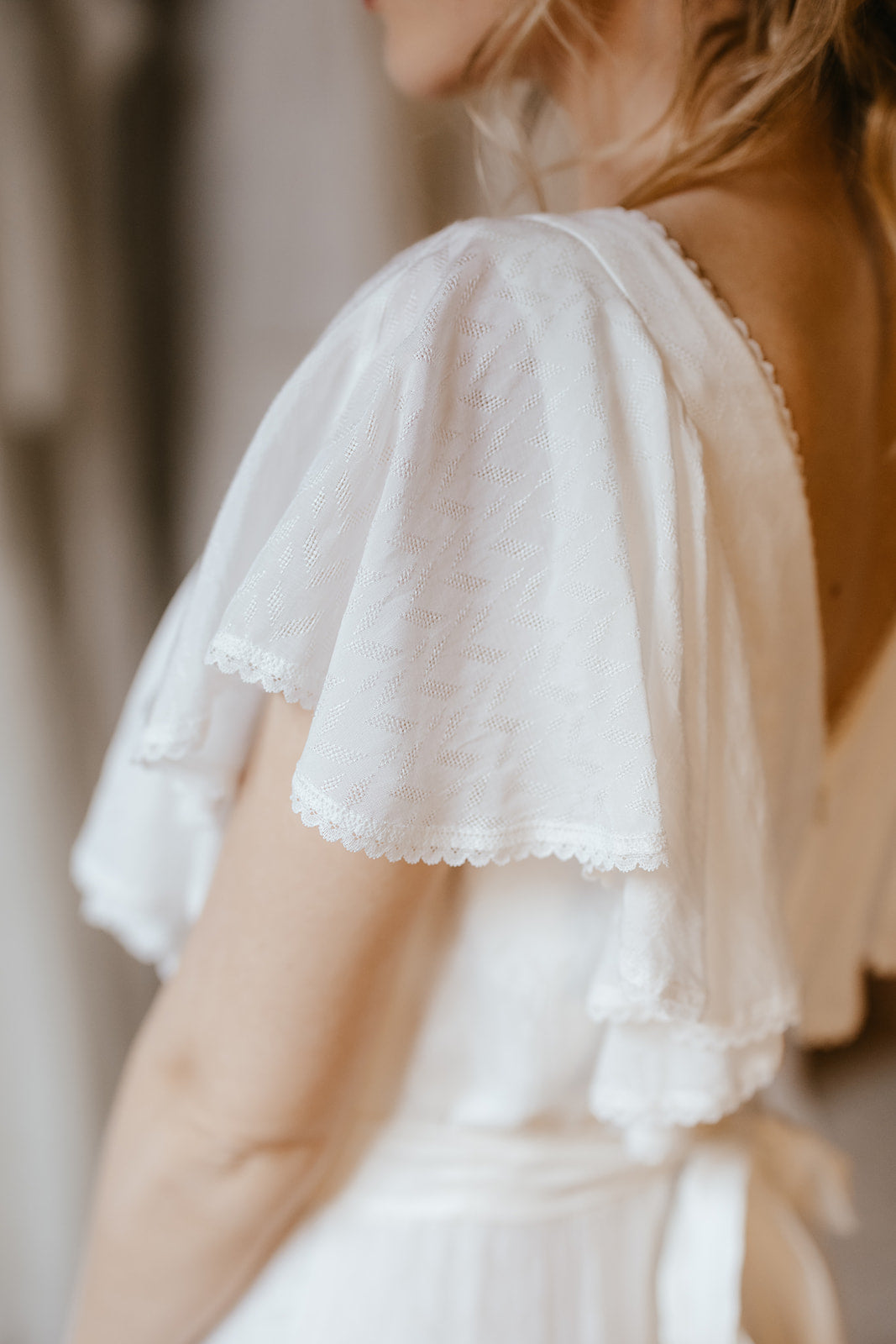Made in Great Britain
The laces we use are all produced in the UK. They are either 100% cotton or mainly cotton, with a small amount of polyester or polyamide added to reduce pilling. We also use silks that are produced in the UK from scratch (yes, from the mulberry tree eating silkworms) by a small manufacturer. Although their ahimsa silk is organic, it is no longer certified. Certification is expensive, and some small businesses simply cannot afford it. Unlike regular silk, Ahimsa silk is produced without killing the silkworms.

Organic
All our long gowns are lined with Oeko-Tex Standard 100 Class 1, Ecocert and OCIA certified organic bamboo. Our bamboo lining is soft and smooth to the touch, and it feels luxurious to wear. Because of its thermoregulatory properties, bamboo is the perfect lining for both summer weddings and winter weddings, as bamboo is a breathable fibre and keeps you feeling fresh and cool when it's hot and warm when it's cold without making you perspire.

Highest quality and vegan
With the exception of only few, all our dresses are vegan. Not only vegan, but sustainably vegan. The local production or certification of our materials ensures that they are sustainable as well as made to the highest quality.

